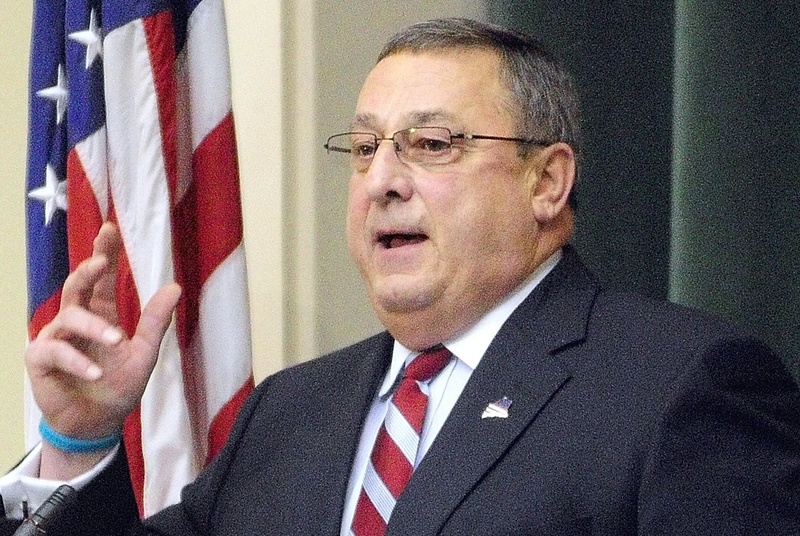Gov. LePage went on the air last Saturday with a radio address touting the findings of a study that claimed renewable energy would cost jobs and hurt Maine’s economy.
It turns out that study was funded by oil companies, climate change deniers and the libertarian billionaires Charles and David Koch, who have substantial fossil fuel investments that are in conflict with the development of clean energy. That’s the kind of revelation that might make some politicians rethink their position, or at least disavow the talking points. But that’s not what LePage did.
A governor’s spokeswoman said he did not know that the Beacon Hill Institute, which authored the study, was so connected to the oil industry. But she said that it really didn’t matter.
“The real issue isn’t who funded the study,” said Adrienne Bennett. “It’s that renewable energy and wind energy is more expensive than other sources.”
But Bennett is wrong. When evaluating what the study says its important to also consider who paid for it and why. If they have obvious biases, that may rightly affect how much weight people give their findings.
Imagine if LePage prefaced his remarks with, “an oil-industry funded study found …” instead of just “studies indicate?” Wouldn’t that change how people received the information?
And it’s not just its source that is the subject of criticism – the content of the report is also under attack. The authors of the report calculated that future renewable energy prices would be higher than projected by the U.S. Energy Information Administration. When that kind of mathematical adjustment is involved, its important to know who is behind the report and what interest they might have in the policy that results.
The administration has used this kind of defense before. After the governor put out an executive order setting policy goals for virtual education, it was found that most of the text was boiler plate language written by a national lobbying group that promotes virtual schools.
The people behind the energy report also contribute to the American Legislative Exchange Council, which produces model industry-friendly legislation.
Writing the bills, which would appear to be submitted by a state lawmaker and supported by allegedly independent research, is a powerful one-two punch for an industry with vast resources. That’s why it matters that the public know who paid for the research.
Send questions/comments to the editors.



Success. Please wait for the page to reload. If the page does not reload within 5 seconds, please refresh the page.
Enter your email and password to access comments.
Hi, to comment on stories you must . This profile is in addition to your subscription and website login.
Already have a commenting profile? .
Invalid username/password.
Please check your email to confirm and complete your registration.
Only subscribers are eligible to post comments. Please subscribe or login first for digital access. Here’s why.
Use the form below to reset your password. When you've submitted your account email, we will send an email with a reset code.